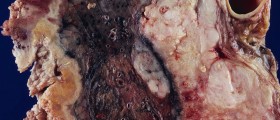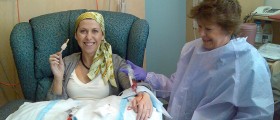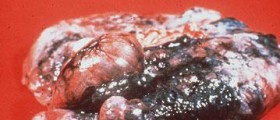
Mesothelioma disease is actually a rare form of cancer that begins in the mesothelium. The mesothelium is a protective membrane that covers the body’s primary organs. This membrane is composed of two layers of cells called mesothelial cells. Mesothelioma cancer develops when mesothelial cells start growing and multiplying uncontrollably.Types of Mesothelioma Cancer
There are four types of mesothelioma. The most common type of the disease is pleural mesothelioma that affects the lining of the lungs called pleura. Peritoneal mesothelioma affects the lining of the abdominal cavity known as the peritoneum. Cancer that develops in the protective membrane of the heart (the pericardium) is called pericardial mesothelioma. This form of mesothelioma is rare and represents about 5 percent of all mesothelioma cases. Finally, there is also a testicular mesothelioma which is the rarest type and affects the membrane surrounding the testicles known as the tunica vaginalis.
Causes of Mesothelioma Cancer
Mesothelioma is primarily caused by exposure to asbestos. Inhalation of asbestos fibers can lead to pleural mesothelioma while peritoneal mesothelioma occurs due to ingestion of asbestos fibers. The major risk factor for mesothelioma is working with asbestos.
Mesothelioma cancer is diagnosed in approximately 2,000 to 3,000 people in the United States each year. Unfortunately, mesothelioma is often first detected when the disease has reached advanced stages. This is because symptoms of mesothelioma may develop 20 to 50 years after exposure to asbestos.
Symptoms of Mesothelioma
Mesothelioma is often misdiagnosed because the symptoms are non-specific and closely resemble other respiratory diseases. Pleural mesothelioma typically causes persistent dry cough, shortness of breath, chest pain, trouble swallowing, night sweats and fever.
Patients with peritoneal mesothelioma usually experience abdominal pain and swelling due to accumulation of fluid in the abdomen, nausea, vomiting, loss of appetite, excessive weight loss, bowel obstruction, fatigue and night sweats.
Pericardial mesothelioma can cause heart palpitations, chest pain, difficulty breathing, fatigue and fever. Appearance of testicular lumps is the major symptom of testicular mesothelioma.Diagnosis of Mesothelioma
Diagnosis of mesothelioma includes physical examination and review of medical history of a patient. X-ray of the chest or abdomen is also performed. Further testing including CT scan, PET scan and MRI scan are often used too. To confirm the diagnosis a doctor may perform a biopsy, which involves taking a sample of tissue to be examined under a microscope.
Treatment of Mesothelioma
Mesothelioma cancer cannot be cured and treatment for the disease is most often designed to lessen the severity of the symptoms. Treatment options for mesothelioma are surgery, chemotherapy and radiation therapy.

















Your thoughts on this
Loading...